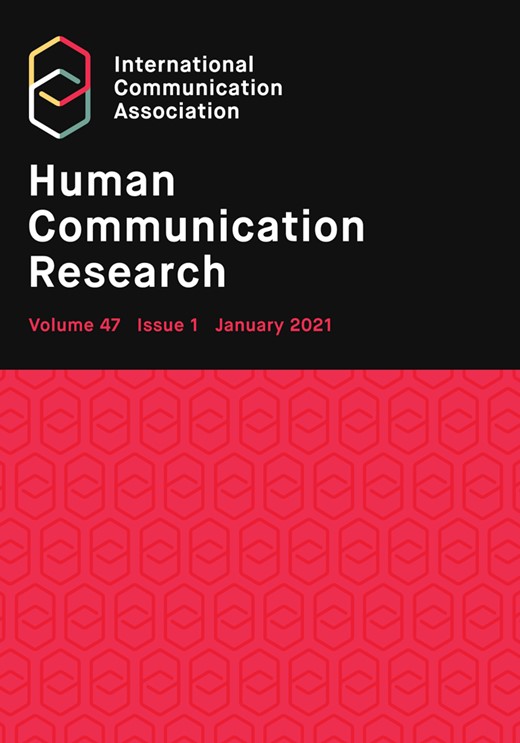-
Views
-
Cite
Cite
Myojung Chung, Nuri Kim, When I Learn the News is False: How Fact-Checking Information Stems the Spread of Fake News Via Third-Person Perception, Human Communication Research, Volume 47, Issue 1, January 2021, Pages 1–24, https://doi.org/10.1093/hcr/hqaa010
Close - Share Icon Share
Abstract
While fact-checking has received much attention as a potential tool to combat fake news, whether and how fact-checking information lessens intentions to share fake news on social media remains underexplored. Two experiments uncovered a theoretical mechanism underlying the effect of fact-checking on sharing intentions, and identified an important contextual cue (i.e., social media metrics) that interacts with fact-checking effects. Exposure to fake news with fact-checking information (vs. fake news without fact-checking information) yielded more negative evaluations of the news and a greater belief that others are more influenced by the news than oneself (third-person perception [TPP]). Increased TPP, in turn, led to weaker intentions to share fake news on social media. Fact-checking information also nullified the effect of social media metrics on sharing intentions; without fact-checking information, higher (vs. lower) social media metrics induced greater intentions to share the news. However, when fact-checking debunked the news, such an effect disappeared.





